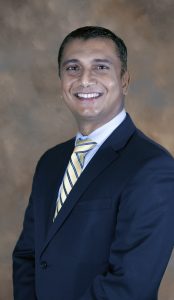Substance Abuse Treatment Facility and State Prison
Main Phone: (559) 992-7100
Physical Address: 900 Quebec Avenue, Corcoran, CA 93212 (Directions)
- Institution: P. O. Box 7100, Corcoran, CA 93212
- Inmate Mailing Address:
- Facility A & B, P.O. Box 5248, Corcoran, CA 93212
- Facility C, P.O. Box 5246, Corcoran, CA 93212
- Facility D & E, P.O. Box 5242, Corcoran, CA 93212
- Facility F & G, P.O. Box 5244, Corcoran, CA 93212
Visitors Information
California Substance Abuse Treatment Facility is moving forward to Phase III providing In-person & Video visiting to allow friends and family to safely connect with incarcerated people. In-person visiting will consist of two hour visits for two additional adult or minor visitors (age 2 and above), for a total of three approved visitors, per incarcerated person. Video Visit will remain 1 hour every Sunday. All institutions will be following public health protocols while conducting contact and video visitation, including physical distancing and sanitation of each station following a visit. Further details, including how to reserve a visiting appointment can be found on CDCR’s Visiting Information page: https://www.cdcr.ca.gov/visitors/
The following information is outlined to assist with basic Video Visiting and In Person Visiting information as well as scheduling In Person Visits.
Visiting during Phase 3- of the Road map to Reopening:
- Six feet physical distancing shall be maintained between visitors and incarcerated persons, and six feet of physical distancing between one group of visitors and another
- Childs play area will be made available. COVID-19 sanitation protocols will be followed throughout the visiting day
- Face coverings shall be required
- Unvaccinated visitors shall be required to present a negative COVID-19 test obtained within 72 hours prior to the visit
- Fully vaccinated visitors and incarcerated persons shall not be required to test prior to the visit
- Visitors are required to present their vaccination card indicating they are two weeks past the final injection of their last injection.
- All incarcerated persons shall be COVID-19 tested by PCR 72-96 hours after the visit
- Incarcerated persons who decline testing shall not be eligible for in-person visiting
- Vending Machine food shall be allowed $70 per adult $40 per child
- Water bottles shall be made available to visitors and incarcerated persons when vending machines are not available
- Family Visits began the week of June 7, 2021
Friday In-Person visits will be scheduled through VSA at https://cdcr.gtlvisitme.com/app. The reservation for Visits begins Thursday through Sunday at 6am to Midnight Pacific Standard Time each day reservations are open. Visitors will not be permitted on grounds prior to 11:00 a.m. on Fridays.
Saturday In-Person visits will be scheduled by visitors using VSA system at https://cdcr.gtlvisitme.com/app. The reservation for Visits begins Friday through Tuesday at 6am to Midnight Pacific Standard Time each day reservations are open. Visitors will not be permitted on grounds prior to 07:30 a.m. on Saturdays.
All In-Person Visitors shall arrive at least 1 hour prior to their scheduled appointment. Appointment times for Friday are 1130-1330, 1400-1600, and 1630-1830. Appointment times for Saturday are 0800-1000, 1030-1230, and 1300-1500.
Sunday Video Visits will be scheduled by visitors using VSA system at https://cdcr.gtlvisitme.com/app. The reservation for Visits begins Saturday through Wednesday at 6am to Midnight Pacific Standard Time each day reservations are open. Visiting Times for Video Visits are 0800-900, 0930-1030, 1100-1200, 1230-1330, and 1400-1500.
Unvaccinated visitors shall be required to present a negative PCR or POC test result from a test taken within 72 hours, or present their vaccination card indicating they are two weeks past the final injection of their vaccination series.
Fully vaccinated visitors shall not be required to test prior to the visit.
All Visitors will present your Vaccine Card, printed proof of full vaccination status, or results from a negative COVID-19 test taken within 72 hours before their scheduled visit to the Visiting Processing Officer. Name and Date of negative COVID-19 test must be clearly identifiable.
Visiting Processing Area – West Entrance (STRH/A/B/C) or East Entrance (D/E/F/G)
Visitors can find COVID-19 test site locations by county when clicking on this link: Testing – Coronavirus COVID-19 Response (ca.gov)
Please Note: Friends Outside will not be providing services at their visitor centers until further notice. Please plan accordingly.
- PIA: Food & Beverage Packaging
- Vocational: Air conditioning and refrigeration; auto body; auto transmission; auto tune-up; building maintenance; electrical works; electronics; masonry; office services; plumbing; small engine repair; welding
- Academic: Adult Basic Education I, II and III/GED; Behavior Management Unit (BMU); Developmental Disability Program (DDP); Disability Placement Program (DPP); Independent Study; Literacy Lab
- Other: Religious services; Drug Treatment/Diversion; Alcoholics Anonymous: Narcotics Anonymous
DRP Programs
Integrated Substance Use Disorder Treatment (ISUDT)–Overview
On January 21, 2020, the California Department of Corrections and Rehabilitation (CDCR) and California Correctional Health Care Services (CCHCS) implemented ISUDT. ISUDT is a comprehensive and evidence-based cross-divisional program with pathways to treatment through DRP Cognitive Behavioral Interventions (CBI) programs referred to as:
CBI-Intensive Outpatient (Medical Classification T1, SOMS assignment code ISI) 2-hours/day, 5-days/week, 52-weeks completion
CBI-Outpatient (Medical Classification T2, SOMS assignment code ISO) 2-hours/day, 3-days/week, 14-weeks completion
CBI-Life Skills (Medical Classification T3, SOMS assignment code CB2) 2-hours/day, 3-days/week, 29-weeks completion
All participants will be assessed by medical and referred to one of the CBI classes.
Family Liaison Service Specialist
CDCR provides through a contract with a community-based organization an on-site Case Manager as a family reunification liaison for inmates and family members, to assist with an inmates pre-release preparation; and conduct Parenting and Creative Conflict Resolution classes for inmates. Please call the Institution to contact the Family Reunification Liaison.
The California Substance Abuse Treatment Facility is located in the city of Corcoran, situated in the central San Joaquin Valley, against the back drop of the Sierra Nevada Mountains. Corcoran is only a two hour drive from the Central Coast and located half way between Los Angeles, Sacramento, and San Francisco. With the rich culture, prosperous business community, and thriving agricultural industry, you will find a family oriented environment, ideal for work or leisure.


The primary mission of the California Substance Abuse Treatment Facility and State Prison at Corcoran (SATF/CSP) is to protect the public by ensuring those inmates who are remanded to the California Department of Corrections and Rehabilitation (CDCR) remain in custody, until they are scheduled to be released. CSATF/SP will accomplish this by employing the highest standards of “Correctional Professionalism” in the performance of our duties.
Protect staff by providing the proper equipment and best training that is available in the use of the equipment, and by ensuring staff are informed of Departmental Policy and Procedures, while consistently reinforcing that all behavior must fall within those guidelines.
Protect inmates by ensuring the CSATF/SP properly classify and house them within Departmental guidelines, by holding the inmate population and staff responsible for adhering to Departmental Policies and Procedures, and fairly enforcing all law and regulations.
Provide the inmate population access to the Department’s Disability Placement Program (DPP), Developmental Disabled Program (DDP), medical, dental, and mental health services that meet the applicable standards. Work with medical staff to ensure competent, compassionate, and professional care is provided at all times.
Provide educational, vocational, re-entry and self-help programs that are current by society’s standards that will provide inmates life skills, and work skills that can be used in support of their efforts at reintegration into society.
Encourage public awareness and interactivity through or Citizens’ Advisory Counsel, and facilitating appropriate access by outside agencies, legislators, the media, and public to maintain accountability.

Bryan D. Phillips has been Warden at the California Substance Abuse Treatment Facility since February 2024. Mr. Phillips began his career with the California Department of Corrections and Rehabilitation in 1996, as a Correctional Officer at Avenal State Prison. In 1997, he transferred to the California Correctional Institution (CCI), Tehachapi as a Correctional Officer and promoted to Correctional Sergeant in 2003. In April 2008, he transferred to the California Men’s Colony (CMC). From 2008 through 2020, Mr. Phillips served in several positions at CMC, to include Correctional Sergeant, Correctional Lieutenant, Correctional Counselor-II, Specialist, Captain, and Associate Warden (AW). In 2020, Mr. Phillips was assigned to Richard J. Donovan and served in several positions including AW and Chief Deputy Warden (CDW) (A). In December 2020, Mr. Phillips returned to CMC as an AW and was successfully appointed to CDW.

Dr. Anu Banerjee is a healthcare leader with more than 18 years of experience in profit and non-profit health systems. He holds a strong passion in developing collaborative models with leadership, patients, and staff for well-integrated healthcare systems. He strongly believes in strong teams that innovate using lean methodologies to implement and execute a robust prescriptive analytical method that can answer real time solutions to some of the most complex data questions in healthcare. Today, Dr. Banerjee continues to strive for the best healthcare strategies that fit the most challenging healthcare opportunities to meet the vision and mission of our current healthcare system.
Dr. Banerjee holds a doctorate in healthcare operations focused on chronic disease management for diabetes and hypertension. He also holds two graduate degrees in industrial engineering and healthcare management.
Local Inmate Family Councils (IFC’s) are a gathering of family and friends of the incarcerated who meet regularly with Wardens to support visiting since keeping strong family connections with loved ones is a powerful rehabilitative tool. These IFC’s promote visiting by clarifying rules and regulations as well as discussing health, education, vocational training, packages, books, and related issues. For more information on connecting with a local IFC, please visit the Statewide IFC website.